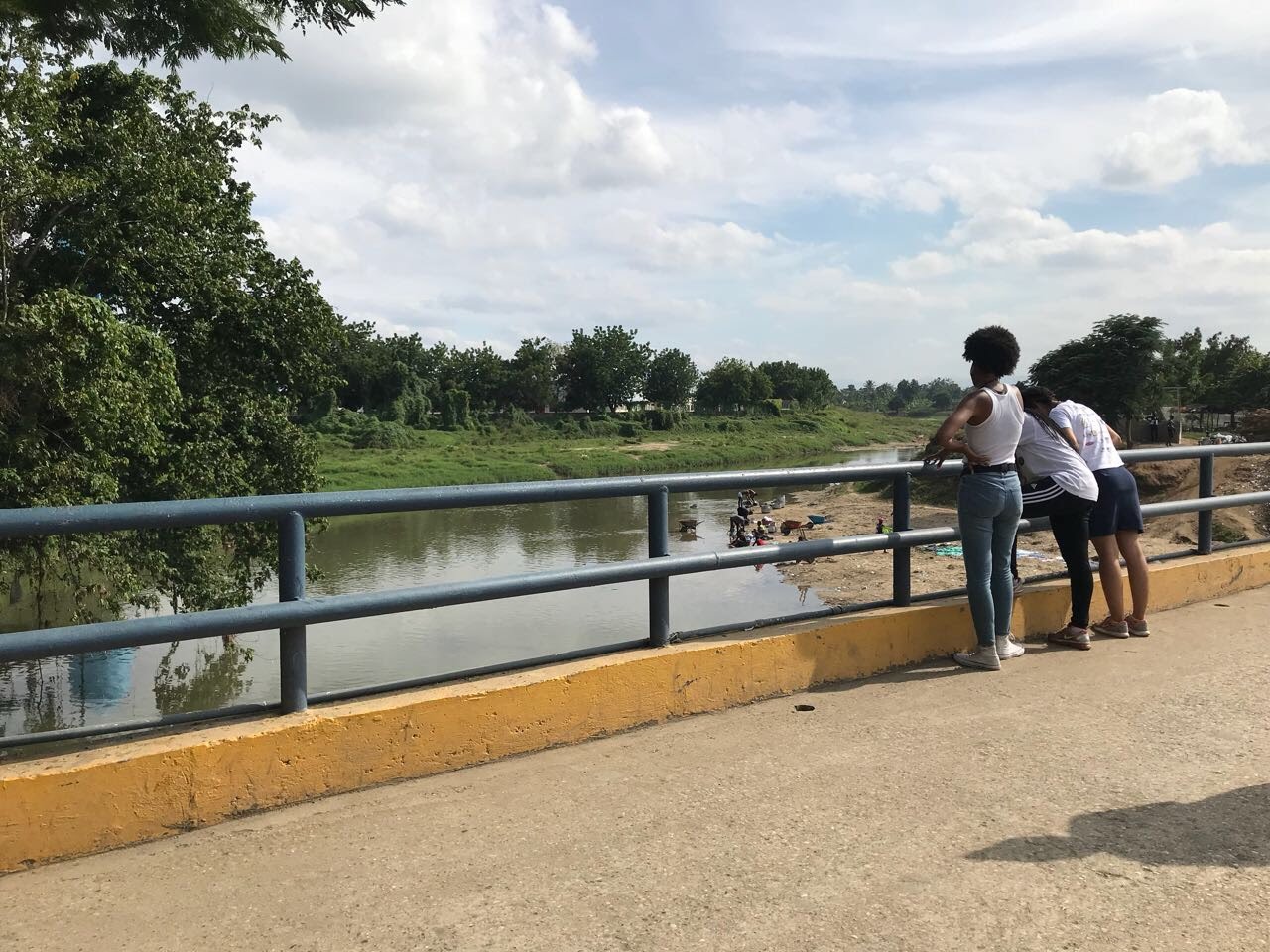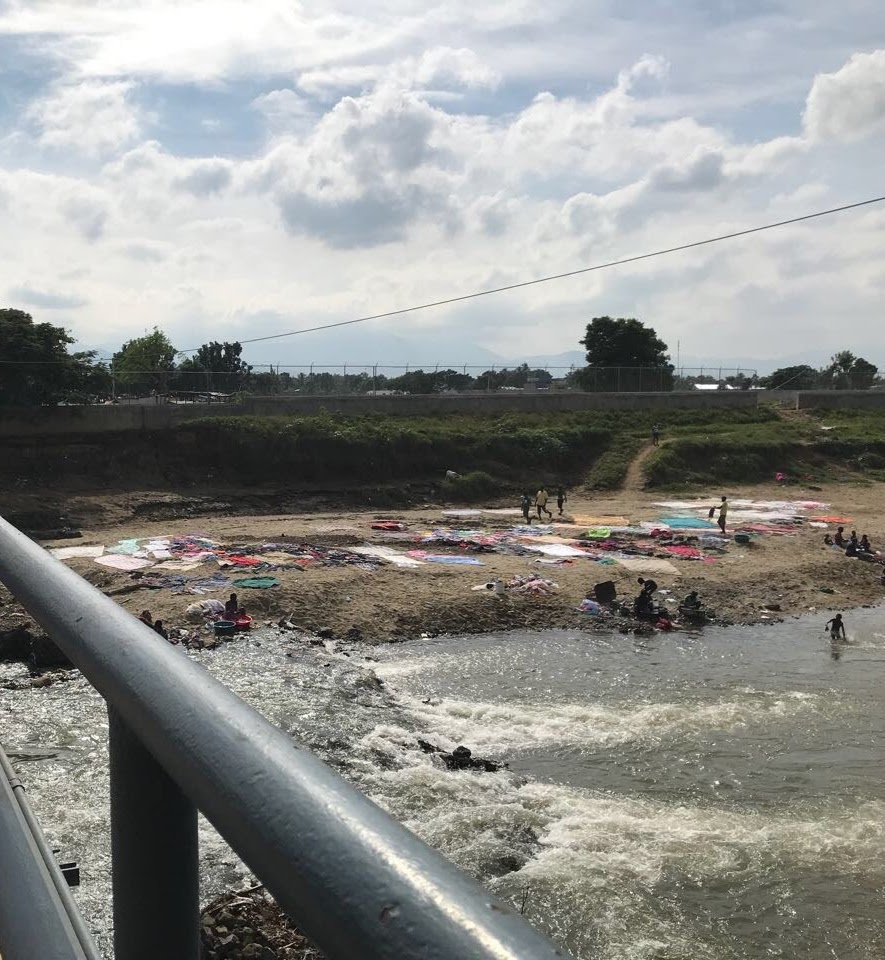
My skin is uncomfortable in the Dominican Republic, and it has constantly made those around me uncomfortable. Most days, I am uncomfortable in the Dominican Republic. But I’m here, and because I am and have been for nearly three months, I can write about it. I have stories to tell my family, to scream to the world when I get back home.
I can understand history now, see the effects of 30 years of dictatorship and of the power of pure, unwavering ignorance. I’ve experienced treatment I would never be able to understand no matter how many times I’ve read about it in an article, and now more than ever, I can understand the struggle of black people, my people on a global scale.
When CIEE announced that we were going to a market, I was sure it would be an amazing experience, though I wasn’t sure of what in particular would make it amazing. We were told that we were going to Dajabon. I knew it would be very crowded, especially since it’s at La Frontera (the border), as well as knew that the market played a fundamental role in rebuilding Haiti’s economy. I remember reading A Global Trek to Poor Nations, From Poorer Ones by Jason DeParle which gave me insight on the border and its neighboring town named Ouanaminthe.
The article reads:
“Twice a week, Dominicans open the bridge, and thousands of Haitians rush across to buy goods that are scarce on their side: eggs, nails, flour, concrete, carrots, salami, juice, cooking oil, chickens and plastic chairs. Guards patrol the area, trying to ensure the Haitians’ return.”
Reading that, I struggled to understand how it’s possible that two countries that share ONE island can have such a distinct amount of resources and access to certain items. I wanted and want to know what made it that everything needed to survive magically happened to be on one single side of the island, and badly wanted to understand how the people on side of the island with scarce resources feel about having to constantly travel to get what they need– do they ever get pissed and think “If I only we had this, I wouldn’t have to continuously go over there.
I proceeded to watch a video of the gates of the border opening and was in awe. There were people with buckets on their head running, almost as if they didn’t run fast enough, they would lose their lives. They had no other option but to run.
So, I knew it would be a bunch of people and that it would be hectic, but watching something behind the screen of a computer could never be the same as seeing it with your own eyes. And it wasn’t.

When we first walked in, I remember saying “This looks like Africa.” It has that thick, musty smell of sand that Africa does, that fast moving motion that the markets of Senegal and Burkina Faso have, but most importantly, the melanin-enriched black skin that I see in my family, in pictures and movies, and that I’ve seen in Africa each time I’ve gone.
I remember that for probably the first time on this gap semester abroad, I entered a space where I truly felt welcome and at home. I did not feel like I was taking up space. I did not feel unwanted. I did not feel like an outcast. I did not feel the constant dehumanizing stares of people I receive in the streets, in La Sirena, or in my concho rides.
I saw beautiful black women proud to wear their natural hair in afros, in neat cornrows. I saw them carrying buckets on the top of their heads, walking graciously, demanding that the crowded markets make room for their hips, their unmatched presence. I saw beautiful black kings selling fish, yelling “avance” while graciously carrying heavy red barrels down the crowded, boisterous markets of Dajabon. I saw dresses, shirts, pants, pillows, people leaning over tables to fight for shoes, lotion in orange bottles, soap, baby clothes, white and beige bras, fried fish. I saw the world in that market.
There’s no pamphlet telling dark skinned people how to survive in the Dominican Republic. There aren’t enough articles or words available to encompass the feelings and experiences of dark-skinned people in the Dominican Republic. If there was one, I’m pretty sure it would say that it’s emotionally damaging, but most importantly, it makes you feel like an outsider in a space you’re equally inhabiting with other individuals. It would say that you will be here but you WILL NOT be seen (at all, or as a human), your skin will make you invisible, unworthy of recognition in the eyes of many. Dajabon, Ouanaminthe, and the border reminded me that there is always a place in this world for me, a place I will feel truly welcome, a place I can call home.
